Motility
Motility refers to the ability of an organism or cell to move independently using its own energy. In biology, motility can refer to the movement of whole organisms, such as animals, or the movement of individual cells, such as bacteria or sperm.
Types of Motility
There are several types of motility in biology:
- Animal Motility: Animals exhibit motility through various modes of locomotion, such as walking, running, swimming, or flying.
- Cellular Motility: Individual cells, such as bacteria, protozoa, and sperm, can exhibit motility through mechanisms like flagella, cilia, or pseudopodia.
- Muscle Motility: Muscles in animals and humans enable motility through contraction and relaxation, allowing for movement and mobility.
Mechanisms of Motility
The mechanisms underlying motility can vary depending on the organism or cell type. Some common mechanisms include:
- Flagella: Whip-like appendages that protrude from the cell and enable movement through a whipping motion.
- Cilia: Hair-like structures that beat rhythmically to propel the cell or move substances around the cell.
- Pseudopodia: Temporary protrusions of the cell membrane that extend and retract, allowing for crawling-like movement.
- Muscle Contraction: In animals, muscle cells contract and relax in response to nerve signals, leading to movement.
Importance of Motility
Motility is essential for various biological processes and functions, including:
- Survival: Motility allows organisms to escape from predators, find food, and seek out suitable habitats.
- Reproduction: Sperm motility is crucial for fertilization, as it enables the sperm to swim towards the egg for fertilization.
- Cellular Function: Motility in cells helps in processes like immune response, nutrient uptake, and waste removal.
Study Guide
When studying motility, consider the following key points:
- Understand the different types of motility and their significance in the biological context.
- Learn about the mechanisms of motility, including flagella, cilia, pseudopodia, and muscle contraction.
- Explore examples of motility in various organisms, such as bacteria, protozoa, animals, and humans.
- Examine the importance of motility for survival, reproduction, and cellular function.
- Consider the role of motility in disease processes, such as the motility of cancer cells.
By understanding the concept of motility and its implications, you can gain insight into the diverse ways in which organisms and cells move and function in their environments.
Good luck with your studies!
.◂Science Worksheets and Study Guides Sixth Grade. Plant Processes
Study Guide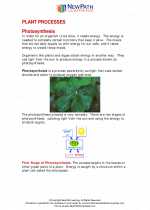 Plant Processes
Plant Processes  Activity Lesson
Activity Lesson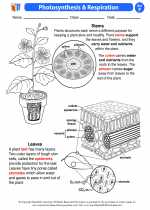 Photosynthesis & Respiration
Photosynthesis & Respiration  Worksheet/Answer key
Worksheet/Answer key Plant Processes
Plant Processes  Worksheet/Answer key
Worksheet/Answer key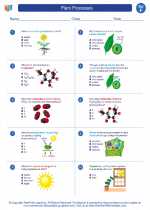 Plant Processes
Plant Processes  Worksheet/Answer key
Worksheet/Answer key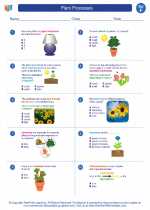 Plant Processes
Plant Processes  Worksheet/Answer key
Worksheet/Answer key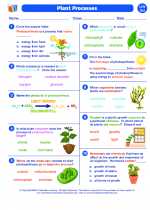 Plant Processes
Plant Processes  Vocabulary/Answer key
Vocabulary/Answer key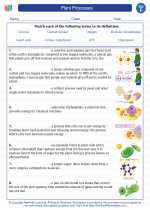 Plant Processes
Plant Processes  Vocabulary/Answer key
Vocabulary/Answer key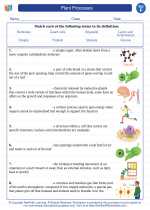 Plant Processes
Plant Processes 

 Activity Lesson
Activity Lesson
 Worksheet/Answer key
Worksheet/Answer key
 Worksheet/Answer key
Worksheet/Answer key
 Worksheet/Answer key
Worksheet/Answer key
 Worksheet/Answer key
Worksheet/Answer key
 Vocabulary/Answer key
Vocabulary/Answer key
 Vocabulary/Answer key
Vocabulary/Answer key

The resources above cover the following skills:
LIFE SCIENCE
From Molecules to Organisms: Structures and Processes
Students who demonstrate understanding can:
Construct a scientific explanation based on evidence for the role of photosynthesis in the cycling of matter and flow of energy into and out of organisms.